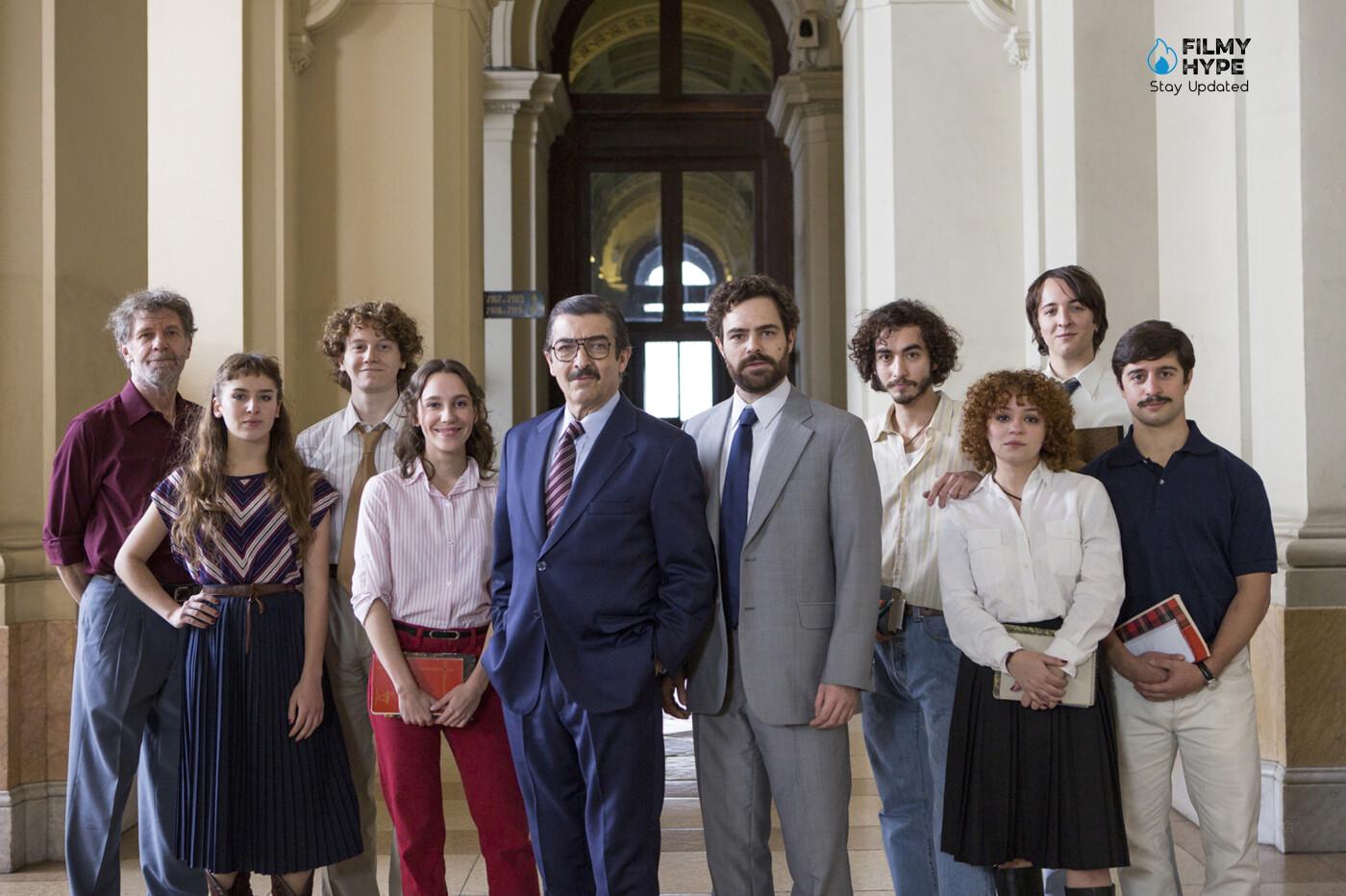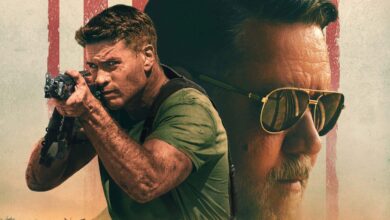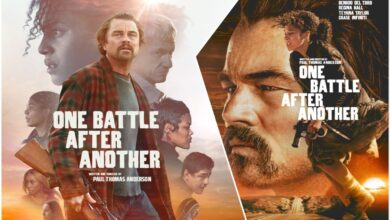Argentina 1985 Review: The Battle Of Justice Against Fascist Inhumanity (Venice 79)
Argentina 1985 Review: The Battle Of Justice Against Fascist Inhumanity (Venice 79)
Cast: Ricardo Darín, Peter Lanzani, Alejandra Flechner
Director: Santiago Miter
Filmyhype.com Ratings: 4/5 (four stars)
First time at the Venice Film Festival for Santiago Miter, who brings the history of his country to the big screen with Argentina 1985, among the feature films that make up the official competition. The film reunites the director with Ricardo Darín, one of the most iconic Argentine performers of his generation, who plays the role of prosecutor Julio Strassera, who was entrusted with the task of bringing army commanders to trial for the atrocities committed during the military dictatorship. It always happens at festivals: there are super anticipated titles, with huge names and stars, which capture the attention of the media and, sometimes but not always, even praise and awards; sometimes, however, they are also the ones that disappoint the most.

Then there are those titles to which no one pays attention at the beginning, but which slowly make themselves talked about only for their artistic merits and through word of mouth. It is often the latter, despite the predictions of the eve, to become the winners (especially moral) of this kermesse. With this review of Argentina, 1985 we will try to explain why, in our opinion, Santiago Miter’s film could convince the jury of this Venezia 79 and take home an important prize. Or why, regardless of how it goes, he deserves it.
Argentina 1985 Review: The Story
The plot begins in 1984, immediately after the end of the military regime established in Argentina in 1976 and led by General Jorge Rafael Videla. When the Argentine court-martial refuses to try the military governors – responsible for the kidnapping, torture, murder and disappearance of more than 30,000 people – the difficult and dangerous undertaking goes to prosecutor Julio César Strassera. The latter with the help of his new assistant, Luis Moreno-Ocampo, and a few young volunteers will find himself forced to prepare in record time for the largest war crimes trial that has taken place since the Nuremberg one and to ensure that there is enough evidence to frame the criminals. All this without being able to count on the help of anyone else, especially the police, due to a country still being wounded.
The film is cautious in its construction, embracing the most traditional of approaches in leading us through the stages of the trial, from the search for evidence, through the intimidation aimed at intimidating the prosecution, to the hearing in the courtroom. However, its linearity does not make Argentina, 1985 less captivating, interested not so much in staging the legal battle between the two parties with objections, but in reclaiming that humanity that was repudiated under the regime. Humanity is absent even on is the faces of the accused; commanders perpetually silent on the screen, except to declare that they do not recognize the legitimacy of the court that will judge them. Mixing fiction and documentary intent, the director lets the actions performed under them speak, giving voice instead to the testimonies of the victims of torture and the families of the disappeared who remained unheard for too long.
Argentina, 1985, however, is not consumed by the mere intent of admonishing and moving the public, leaving ample room for smiles. We laugh, in the film, and often, thanks to moments of lightness capable of cracking the cloak of tension and emotional weight that hangs over the whole affair. Laughter not a sign of contempt, but an indispensable tool to exorcise the fear and doubts that await the protagonists at every corner, to distance them from any idealizing aura and remind us how simple men and women made history.
Argentina 1985 Review and Analysis
However, it would be unfair to think of this Argentina, 1985 as a film made mainly by great actors. Because even before being a good director (see the previous and equally excellent President), the forty-two year old Santiago Miter is above all an excellent screenwriter, as evidenced by their past collaboration with great Argentine authors such as Pablo Trapero. Miter’s work in this film is perfect precisely because, as we said above, he manages to balance the many tones of the film, but also the need to inform and tell real events without ever becoming didactic or banal. Argentina, 1985 is indeed a faithful and precise account of what happened in those years, but it is also and above all a film that manages to tell what an entire country was facing. In this sense, this declaration by the director can be read as a real personal mission, almost as if he too, like the protagonist of his film, felt the need to heal from a still open wound. A wound that will probably never heal completely.
In seeing a film like this, it is first of all spontaneous to admire how a director can exploit the power and strength of the cinematographic story so well to bring about, or at least try, an entire country with its difficult past. And just as spontaneously one also wonders why in Italy it is much more difficult to deal with equally burning topics with the same effectiveness. Because this Argentina, 1985 is everything that a political drama or in any case a story of a true story should do: inform, make people think, excite. All this by reducing rhetoric to a minimum and inserting a minimum of lightness, where possible, to make it more natural and enjoyable even for the general public.
Although the terrible events of the so-called dirty war are roughly known to everyone, it is obvious that in our part of Italy the name of Strassera does not say much. In Argentina, however, many still remember her final indictment today, a speech delivered live on TV and applauded and celebrated throughout the country. It is therefore evident that to interpret such an important character could only be Ricardo Darín, not only an extraordinary actor but also a symbol of quality Argentine cinema for many decades now. It is precisely to him that the pivotal moments of this story belong and it is on him that, rightly, the director aims to be able to balance the many tones present in the story: dramatic, familiar, solemn, moving, sometimes even funny. Along with Darín, there are many other actors who shine.
Because such stories not only need to be told and told well but above all, they need to be heard and lived. Precisely for this reason, it is really difficult not to imagine a bright future for this Argentina, 1985 and its director Santiago Miter: it is the cinema itself, even that of festivals, that needs it. Directed by Santiago Miter and written by the same director together with Mariano Llinás, Argentina, 1985 was selected to compete for the Golden Lion in Venice 79. The cast is composed of Ricardo Darín, Peter Lanzani, Alejandra Flechner, Santiago Armas, Laura Paredes, Carlos Portaluppi.
The Irony is for Miter the weapon with which to rework a page of fundamental history in the history of his country: at the time he was still a child but without a doubt looking at that process, at what it meant, at the forces in the game at that moment through a lens of partial lightness allowed him to reach the right emotional distance, to give the audience a compelling and exciting film, which will arrive on Amazon Prime Video.
Argentina 1985 Review: The Last Words
Argentina, 1985 is a very solid film and essentially flawless. The only thing you could do is to be unoriginal and to risk little or nothing: but when you have such an important story to tell, and you do it so well, it makes no sense to close more. Films of the genre you just have to enjoy them, make them known as much as possible especially to the new generations, and hope that they will help us to ensure that the horrors of the genre never repeat themselves.







